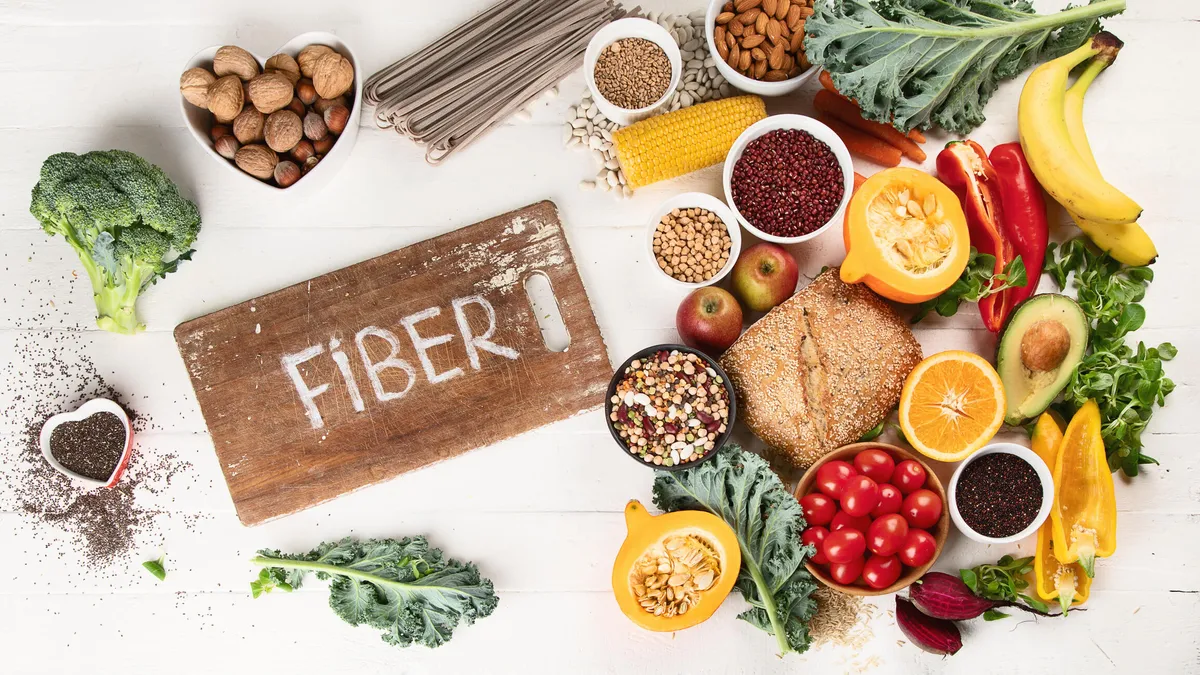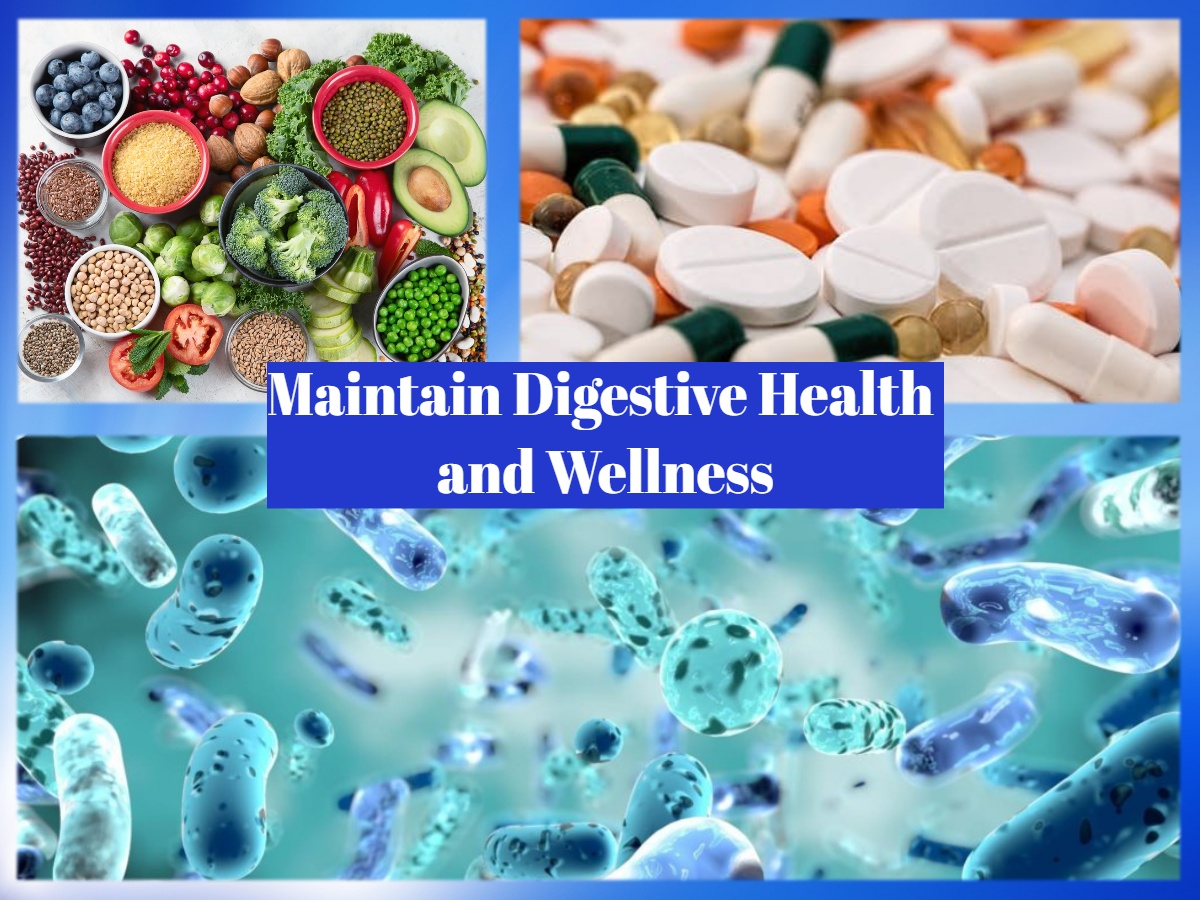Introduction
In the world of nutrition, fiber often takes the spotlight as a vital component of a healthy diet. But what makes fiber so essential, especially when it comes to digestive health? Let’s dive into the world of dietary fiber and explore its crucial role in maintaining a happy, well-functioning digestive system.
Table of Contents
What is Fiber?

Dietary fiber refers to the parts of plant-based foods that the body cannot fully digest or absorb. Unlike proteins, fats, or carbohydrates, fiber travels through your digestive tract relatively intact. Along the way, it contributes significantly to digestive health by promoting regularity, feeding beneficial gut bacteria, and even reducing the risk of chronic diseases.
Why Digestive Health Matters
A healthy digestive system is the backbone of overall well-being. It ensures that nutrients from food are absorbed efficiently, while waste products are expelled promptly. Poor digestion can lead to a host of problems, including bloating, constipation, and even more serious conditions like colorectal cancer. By incorporating adequate fiber into your diet, you give your digestive system the support it needs to function optimally.

Types of Dietary Fiber
Soluble Fiber
Soluble fiber dissolves in water to form a gel-like substance. Found in foods like oats, apples, and beans, it slows digestion and stabilizes blood sugar levels. By softening stool, soluble fiber plays a crucial role in preventing constipation and enhancing bowel movement regularity.
Insoluble Fiber
Insoluble fiber does not dissolve in water but instead adds bulk to stool. This type of fiber, found in whole grains, nuts, and vegetables, is particularly effective in preventing constipation and promoting a healthy digestive rhythm.

How Fiber Affects Digestive Processes
Enhancing Bowel Movements
Fiber is like nature’s broom for your digestive system. Insoluble fiber sweeps through your intestines, helping waste move efficiently.
Preventing Constipation
By adding bulk and softening stools, fiber prevents the discomfort and health issues associated with constipation.
Supporting Gut Microbiota
Soluble fiber acts as a prebiotic, feeding the beneficial bacteria in your gut. A healthy microbiome enhances digestion, boosts immunity, and even affects mood.
Regulating Digestion and Nutrient Absorption
Fiber slows down digestion, allowing more time for nutrient absorption. This can help stabilize energy levels throughout the day.
The Benefits of Fiber for Digestive Health
Prevention of Common Digestive Issues
Fiber helps avoid conditions like hemorrhoids and diverticulosis by keeping your digestive system clean and efficient.
Reducing Risk of Chronic Diseases
Research shows that high-fiber diets are linked to a lower risk of colorectal cancer and other chronic diseases like heart disease.
Weight Management and Digestive Efficiency
Fiber keeps you feeling full longer, reducing overeating and supporting a healthy weight—both of which contribute to better digestive health.
Sources of Dietary Fiber

| High-Fiber Fruits: Apples, berries, pears, and oranges. |
| Vegetables Rich in Fiber: Broccoli, carrots, spinach, and sweet potatoes. |
| Whole Grains and Legumes: Oats, quinoa, lentils, and chickpeas. |
| Nuts and Seeds: Almonds, chia seeds, and flaxseeds. |
Daily Fiber Requirements
The recommended daily intake of fiber varies:
- Adults: 25-38 grams.
- Children: Adjusted based on age and calorie needs.
Increasing fiber gradually is crucial to avoid digestive discomfort.
Tips for Increasing Fiber Intake
| Add fruits or vegetables to every meal. |
| Snack on raw veggies or high-fiber crackers. |
| Consider fiber supplements if you struggle to meet daily needs. |
Common Misconceptions About Fiber
Many people think all fiber is the same, but each type has unique benefits. Moreover, bran isn’t the only source of fiber; fruits, vegetables, and legumes are equally valuable.
Challenges in Maintaining a High-Fiber Diet
A busy lifestyle or food preferences can make it hard to stick to a fiber-rich diet. For those with digestive sensitivities, finding the right balance is key.
Fiber in Special Diets
Vegans and vegetarians often naturally consume more fiber. However, those with gluten intolerance or on low-carb diets may need creative solutions to meet their fiber needs.
Conclusion
Fiber is essential for a healthy digestive system, supporting everything from bowel regularity to gut microbiota. By making mindful choices, you can easily integrate more fiber into your diet and enjoy its wide-ranging benefits.
Frequently Asked Questions
What is the difference between soluble and insoluble fiber?
Soluble fiber dissolves in water, forming a gel that slows digestion, while insoluble fiber adds bulk and promotes regular bowel movements.
How does fiber benefit gut bacteria?
Fiber, especially soluble fiber, acts as a prebiotic, feeding good bacteria that enhance digestion and immunity.
Can you consume too much fiber?
Yes, excessive fiber can cause bloating or gas. It’s best to increase intake gradually and drink plenty of water.
What are the best sources of fiber for children?
Fruits like apples and pears, whole-grain cereals, and carrots are excellent fiber-rich options for kids.
How long does it take to see benefits from a high-fiber diet?
Many people notice improvements in digestion within a few days of increasing fiber intake.










